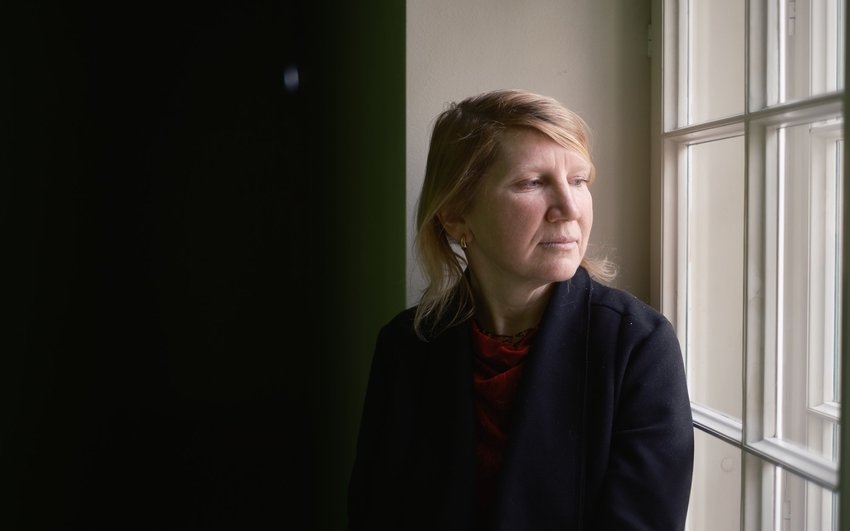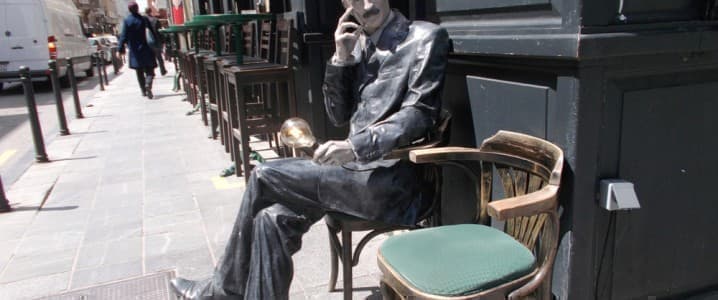The playwright Gunārs Priede could not change the Soviet apparatus, but it would be impossible to imagine the writer Anšlava Eglīti as a dissident in occupied Latvia, says theater scholar Ieva Struka, who has studied the lives and works of both. Pine and Eglīti were united by time, but separated by space. After the Second World War, one of them became the most popular Soviet Latvian playwright, while the other settled on the West Coast of the United States, where he continued to write and became one of the most prolific authors in exile.
Struka has done a titanic job – after studying what Priedes wrote and experienced for many years, she organized and commented on his collected writings (2013-2017) in five volumes and about four and a half thousand (!) pages. The articles also include Priedes’ diary, the reading of which opens the door not only to the artist’s creative process, but also to the history of Latvia for almost 50 years – both to various cultural and social events, and to what was not talked about out loud in Soviet times, such as censorship, especially after Priede’s play “Smaržo senes” was banned, we are,” he wrote in his diary on March 19, 1968. “Everything is going its way, and in an hour – 11.30 – I have to come to the check.”
Struka obtained a Doctor of Arts degree from the University of Latvia and since 2004 has been the head of the literary department at the Latvian National Theatre. Her latest work is the scientific monograph “About a beautiful and ugly life” (2022), which is dedicated to Anšlav Eglītis and has just been awarded with “Kilograms of Cultures”.
You have dedicated 17 years of your life to the research of Gunāras Priedes, and you know both his biography and works very well. Could you describe why exactly he was such an extremely popular playwright in Soviet times?
I can try, yes. Priede himself has emphasized that Latvian dramaturgy continues the tradition of (Rūdolf) Blaumanis and that there is really no one superior to Blaumanis. If we were to look for the Blaumannian in Priede, we would find it in the lyrical intonation, I think it was innovative, at least in the robust Soviet time and environment. Of course, pine works also evoked nostalgia. The productions were watched by people of different generations, although it was the younger audience who perceived him as their own. For the older generation, Priedes lugas was an opportunity to return to the lyrical intonation with which they remembered the departed Latvia at that time.
Against the background of what happened in Latvian literature and drama in the first ten years after the war, Priede appeared with the truth of life. Perhaps from the modern point of view it may seem a little constructed, but at that time it is really a living depiction of the reality of its time, in which reality is not embellished and in which there is an attempt to present and analyze the problems. The man in the hall understood it. He understood that the play by Priedes was not taken from the editorial of (Soviet newspaper) “Cīņa”, but from their real life. I think that the things I just mentioned all worked together, and that’s why Priede was so popular. Of course, his works also had the right time and place.
And Priedes’ meeting with the director Pēteris Pētersonas?
It was decisive. A playwright can already write anything; if there is no one directing him, then nothing happens. Peterson’s intuition worked. He is said to have simply read one phrase written by Priedes in “Jaunākā brāda vaše” (1954) and immediately understood – no one else in Latvian dramaturgy at that time was allowed to say such, so humanely simply. Their meeting was a great success. If it weren’t for Peterson’s desire to stage Priedi, we probably wouldn’t be talking to you about him right now. I think the sense of generation also made a big difference.


